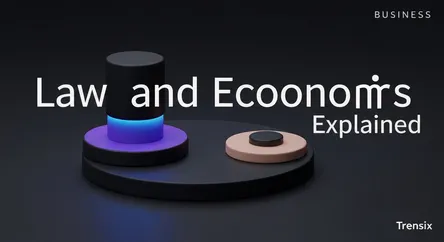Business
Law and Economics Explained

Discover Law and Economics, the field applying economic theory to analyze legal rules and predict their effects on efficiency and human behavior.
What is it?
Law and Economics is an approach to legal theory that applies economic methods to analyze law, assuming individuals respond rationally to incentives. It evaluates legal rules based on their economic efficiency—how well they maximize social wealth or minimize waste. A core idea is the Coase Theorem, which suggests that when transaction costs are low, private bargaining can lead to efficient outcomes regardless of the law. This field uses economic tools to predict the effects of legal frameworks on behavior.
Why is it trending?
This field is trending because it provides a powerful, data-driven framework for evaluating the real-world impact of laws and regulations. As policymakers and businesses seek more effective rules, its quantitative approach is highly valued. It is influential in shaping policy in antitrust, environmental protection, and corporate governance by offering a seemingly objective basis for complex decisions. This perspective has also become a major force in judicial reasoning and legal academia, focusing on practical outcomes over abstract doctrines.
How does it affect people?
This approach shapes rules governing daily life. In tort law, for instance, it helps set liability standards that efficiently balance safety with the cost of precautions. In contract law, it promotes predictable agreements, reducing business uncertainty. It also informs criminal justice by weighing the deterrent effects of punishments against their societal costs. Ultimately, it aims to create a legal system that aligns personal incentives with social efficiency, impacting consumer protection, property rights, and corporate behavior.